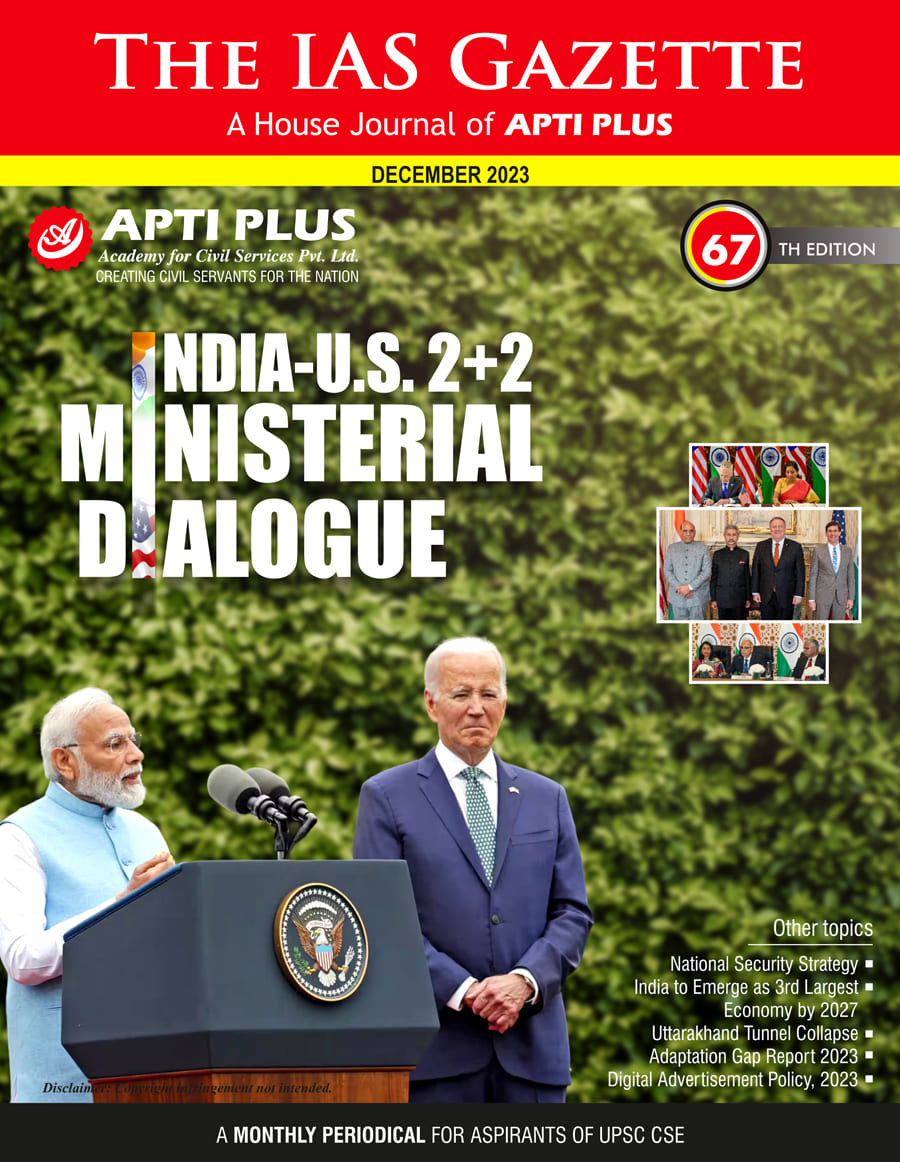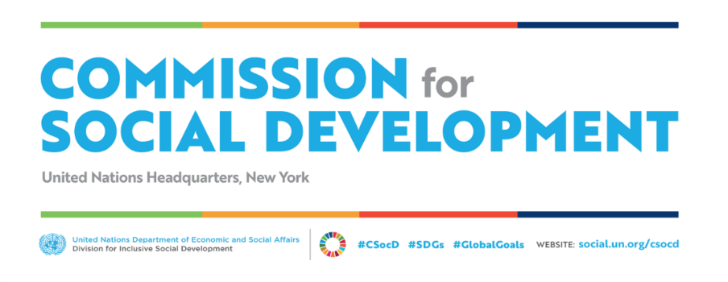Description
.jpg)
Disclaimer: Copyright infringement not intended.
Context
- The World Economic Forum (WEF) is holding its Annual Meeting from January 15 to 19 in Davos, Switzerland.
World Economic Forum (WEF)
About
- The World Economic Forum (WEF) is a Swiss-based international organization that plays a crucial role in shaping global, regional, and industry agendas. Here is an overview covering key aspects of the World Economic Forum:
Foundation and Establishment:
- Founded in 1971 by Professor Klaus Schwab.
- Originally named the European Management Forum, it adopted the name World Economic Forum in 1987.
Nature and Structure:
- Non-profit organization.
- Independent and impartial, facilitating public-private cooperation.
- Headquartered in Geneva, Switzerland.
Annual Meeting in Davos:
- Most famous for its annual meeting in Davos, Switzerland.
- Attracts global leaders from various sectors, including politics, business, academia, and civil society.

Objectives:
- Engages leaders to address and find solutions to global challenges.
- Provides a platform for dialogue and collaboration.
- Promotes public-private cooperation.
Stakeholder Capitalism:
- Advocates for stakeholder capitalism, emphasizing the consideration of all stakeholders, not just shareholders.
Membership:
- Membership includes leaders from governments, businesses, international organizations, academia, and civil society.
Global Agenda Councils (Discontinued):
- Previously had Global Agenda Councils covering specific issues, but these were discontinued in 2016.
Sustainability and Climate Change:
- Actively supports the United Nations Sustainable Development Goals (SDGs).
- Emphasizes the importance of addressing climate change.
Young Global Leaders (YGLs) and Global Shapers:
- Recognizes exceptional leaders under 40 as Young Global Leaders.
- Global Shapers are young leaders working on local community projects.
Criticism and Public Eye Award:
- Faces criticism for perceived elitism and influence of global corporations.
- The Public Eye Award, organized by NGOs, criticizes companies associated with WEF.
Davos Declaration:
- An official declaration emphasizing the commitment to stakeholder capitalism and environmental sustainability.
Reports published by World Economic Forum
- The World Economic Forum (WEF) publishes several reports covering a range of global issues. Here are some of the notable reports published by the WEF:
Global Competitiveness Report:
- Assesses the competitiveness of countries based on factors like infrastructure, innovation, and macroeconomic stability.
Global Risks Report:
- Identifies and analyzes global risks, both in terms of likelihood and impact, covering economic, environmental, geopolitical, societal, and technological risks.
Human Capital Report:
- Evaluates countries based on their ability to develop and deploy healthy, educated, and skilled workforces.
Global Gender Gap Report:
- Assesses gender disparities in countries, covering areas such as economic participation, education, health, and political empowerment.
Global Information Technology Report:
- Examines the global state of information and communication technologies, assessing the impact on economies and societies.
Inclusive Development Index:
- Measures a country's economic performance in terms of its inclusive development, considering income distribution and living standards.
Travel and Tourism Competitiveness Report:
- Ranks countries based on their attractiveness for travel and tourism, considering factors like natural resources, infrastructure, and cultural resources.
Energy Transition Index:
- Assesses countries' readiness for the energy transition, evaluating their commitment to reducing environmental impact and embracing sustainable energy sources.
Global Enabling Trade Report:
- Evaluates the factors that facilitate or hinder the flow of goods across borders, including infrastructure, market access, and border administration.
Global Information Technology Report:
- Provides insights into the adoption and impact of information and communication technologies globally.
Future of Jobs Report:
- Analyzes the impact of technological advancements on the job market, assessing skills in demand and potential job displacement.
Inclusive Growth and Development Report:
- Examines how countries are fostering economic growth that benefits a broad segment of their population.
- These reports contribute to shaping discussions on global economic, social, and environmental challenges, and they are valuable resources for policymakers, businesses, and researchers worldwide. It's important to stay updated on the latest reports, as they often provide insights into contemporary global issues.
|
THE KEY PILLARS/INDICATORS/PARAMETERS OF THE ABOVE-MENTIONED REPORTS:
Global Competitiveness Report:
- Institutions
- Infrastructure
- Macroeconomic stability
- Health and primary education
- Higher education and training
- Goods market efficiency
- Labor market efficiency
- Financial market development
- Technological readiness
- Market size
- Business sophistication
- Innovation
Global Risks Report:
- Economic Risks
- Environmental Risks
- Geopolitical Risks
- Societal Risks
- Technological Risks
Human Capital Report:
- Education
- Skills
- Employment
- Workforce and Employment Gender Gap
- Global Talent Competitiveness Index
Global Gender Gap Report:
- Economic Participation and Opportunity
- Educational Attainment
- Health and Survival
- Political Empowerment
Global Information Technology Report:
- Environment
- Readiness
- Usage
- Impact
Inclusive Development Index:
- Growth and Development
- Inclusion
- Intergenerational Equity
Travel and Tourism Competitiveness Report:
- Business Environment
- Safety and Security
- Health and Hygiene
- Human Resources and Labour Market
- ICT Readiness
- Prioritization of Travel and Tourism
- International Openness
- Price Competitiveness
Energy Transition Index:
- System Performance
- System Structure
- Capital and Investment
- Regulations and Political Commitment
Global Enabling Trade Report:
- Market Access
- Border Administration
- Transport and Communications Infrastructure
- Business Environment
- Operating Environment
- Market Size and Foreign Market Reach
- Customs Environment
Global Information Technology Report (Revised):
- Global Technology Index
- Global Production Network Readiness Index
- Readiness Subindex
- Usage Subindex
- Impact Subindex
Future of Jobs Report:
- Industry Employment and Skills Strategies
- Human Capital Investments
- Skills Stability
- Reskilling and Adaptation
- Skills Mobility
Inclusive Growth and Development Report:
- Growth and Development
- Inclusion
- Intergenerational Equity
|

|
PRACTICE QUESTION
Question:
The World Economic Forum's "Global Competitiveness Report" assesses the competitiveness of countries based on multiple factors. Which of the following is not a key pillar used in this assessment?
a) Infrastructure
b) Health
c) Innovation Capability
d) Environmental Sustainability
Answer:
d) Environmental Sustainability
|




.jpg)
.jpg)

.jpg)
.png)
